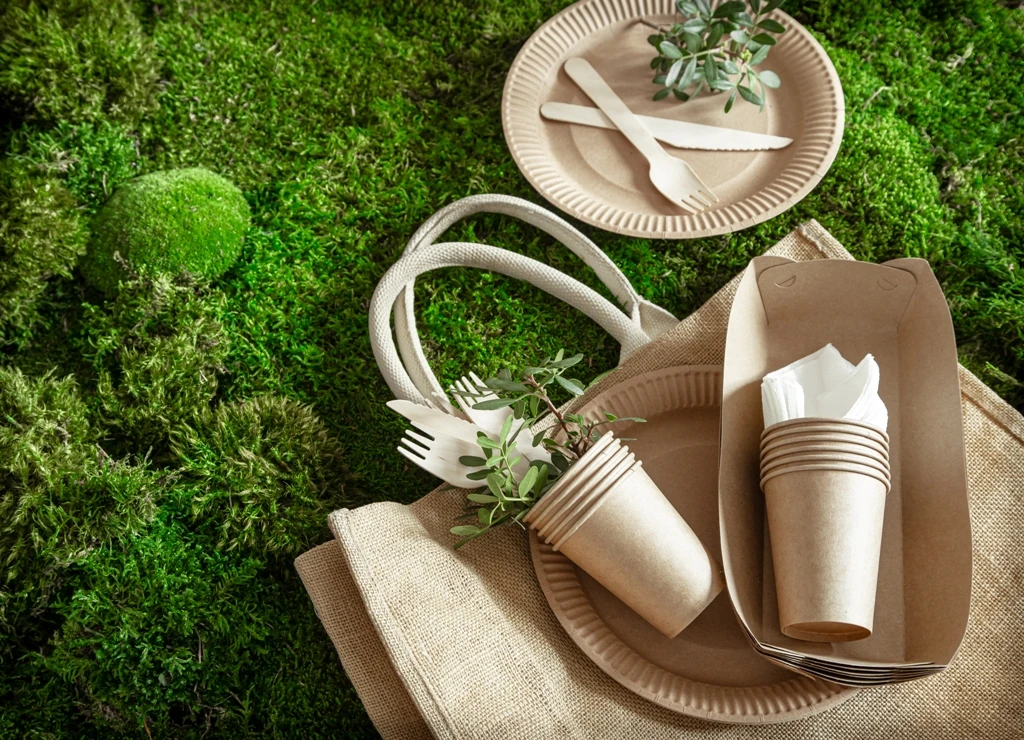“Embrace Eco-Friendly Living: A Guide to Reducing Your Environmental Footprint with Plastic-Free Living”
Living a plastic-free lifestyle is a commendable goal that can significantly reduce your environmental footprint and contribute to a healthier planet. Plastic pollution is a global issue that harms ecosystems, wildlife, and human health.

Here are some steps you can take to embrace plastic-free living and reduce your environmental impact:
- Educate Yourself: Understand the environmental impacts of plastic pollution. Learn about how plastic waste affects marine life, ecosystems, and human health. Knowledge is the first step towards meaningful change.
- Assess Your Current Habits: Take stock of your current lifestyle and identify areas where you can reduce your plastic usage. This could include your shopping habits, personal care products, and daily routines.
- Reduce Single-Use Plastics: Single-use plastics like plastic bags, straws, and utensils are some of the most problematic items. Replace them with reusable alternatives. Carry a reusable shopping bag, use a stainless steel or glass straw, and opt for reusable cutlery.
- Choose Reusable Containers: Instead of disposable plastic water bottles, invest in a reusable stainless steel or glass water bottle. Likewise, use reusable food containers and cloth bags for snacks and lunches.
- Shop Thoughtfully:
- Buy in Bulk: Purchase items in bulk to reduce packaging waste.
- Bring Your Own Containers: Some stores allow you to bring your own containers for items like grains, nuts, and liquids.
- Choose Products with Minimal Packaging: Look for products with minimal or plastic-free packaging.
- Switch to Natural Personal Care Products: Many personal care products contain microplastics and come in plastic packaging. Switch to natural alternatives that come in recyclable or plastic-free packaging.
- Make Your Own Cleaning Products: Instead of buying cleaning products in plastic bottles, make your own using simple ingredients like vinegar, baking soda, and essential oils. Store them in reusable glass containers.
- Ditch Plastic Straws and Cutlery: Say no to plastic straws and disposable cutlery when eating out. Carry your own reusable options if needed.
- Choose Cloth Over Disposable: Swap disposable items like paper towels, napkins, and menstrual products for cloth alternatives. Cloth napkins, towels, and reusable menstrual products are eco-friendly choices.
- Support Sustainable Brands: When purchasing products, choose brands committed to sustainable and plastic-free packaging. Look for certifications like “Plastic-Free” or “Zero Waste.”
- Recycle and Compost Properly: Ensure you recycle correctly and compost organic waste to reduce the amount of trash that ends up in landfills.
- Reduce Microfiber Pollution: Microfiber pollution occurs when synthetic fabrics shed tiny plastic fibers during washing. Use a microfiber filter for your washing machine or choose natural fiber clothing.
- Participate in Cleanup Efforts: Join or organize community cleanup events to help remove plastic waste from natural environments.
- Advocate for Change: Support policies and initiatives that aim to reduce plastic pollution. Write to your representatives and encourage businesses to adopt eco-friendly practices.
- Lead by Example: Inspire others by sharing your plastic-free journey on social media or through conversations. Encourage friends and family to join you in reducing plastic waste.









